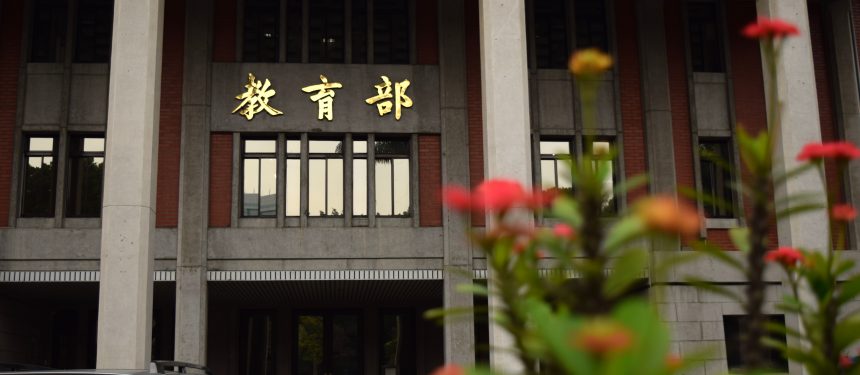Taiwan’s Ministry of Education has announced a three-year, multi-million dollar program of higher education internationalisation initiatives as part of its New Southbound Policy – the national policy to strengthen ties with 18 countries within the ASEAN community, South Asia and Australasia.
News and business analysis for Professionals in International Education
Have some pie!
Taiwan makes huge investment in building regional HE ties
 The Ministry of Education expects to spend around NT$1290m (US$42.13m) on the seven New Southbound Talent Development Policy over the next three years. Photo: The PIE News.
The Ministry of Education expects to spend around NT$1290m (US$42.13m) on the seven New Southbound Talent Development Policy over the next three years. Photo: The PIE News. The ministry’s Higher Education Department has issued a call for participation in seven internationalisation initiatives that form the education and training arm of the policy, the New Southbound Talent Development Policy, including overseas internships and summer schools for international students.
It will allocate a projected NT$430m (US$14.1m) each year for the next three years to initiatives set up by both individual universities and consortia.
“We actively choose to work with Southeast Asian countries: the policy is an encouragement”
The funding will encourage universities to deepen their internationalisation efforts and links with Southeast Asia, Wei-Te Liu, deputy dean of office of international affairs at National Yunlin University of Science and Technology, forecasted.
“We indeed actively choose to work with Southeast Asian countries, because there will be several advantages: the first is the policy is an encouragement,” he told The PIE News.
YunTech already has internship links with Vietnam and Malaysia, and intends to forge more, he said.
The ministry has pledged funding in seven areas. Individual universities can apply for financial support for their international recruitment efforts; to set up summer schools for international students; and to establish overseas internships for domestic students in specified areas such as agriculture, engineering and medicine.
Institutions also have the option of forming consortia to develop Southbound initiatives.
By teaming up, they will be able to apply for subsidies in four areas: creating academic alliance organisations with ASEAN; regional academies for economy and trade, culture and industry in ASEAN or South Asian countries; regional teaching centres to teach Southeast Asian languages; and regional talent schemes to develop expertise in culture, economy and trade.
Each of the initiatives aims to foster longstanding relationships with students or businesses in the target countries, and have detailed criteria for how to carry them out.
Summer school courses, for example, must be longer than 14 days and teach at least 25 students. They are intended not only to enable students from the region to enjoy a “cultural experience” in Taiwan, but also to introduce them to the idea of pursuing a degree in Taiwan in the future, it says.
“The core objective is people-oriented, two-way communication and resource sharing”
“In addition to optimising the current policies and measures, the core objective of the New Southbound Talent Development Policy is people-oriented, two-way communication and resource sharing,” the circular reads.
It aims to cultivate “substantive education exchanges with South Asian countries, deepen the interaction between the two sides to achieve mutual benefit, win-win talent cultivation cooperation and a vision for regional economic development vision.”
Universities that wish to receive support from the ministry will also need to provide match funding for their chosen initiatives, Pei-Shan Tsai, dean of Taipei Medical University’s office of global engagement, told The PIE News.
TMU is currently discussing plans to open some form of transnational teaching centre in Southeast Asia, Tsai said.
“It won’t be to teach languages as we have a healthcare focus, but we are considering setting up branch campus in these countries, like a nursing school or even a nutrition school,” she commented.
Funding for the seven higher education initiatives is overseen by the Ministry of Education’s cross-departmental New Southbound Talent Development Policy taskforce.
The taskforce’s expansive remit covers three objectives: to equip new immigrants’ children with Southeast Asian language skills and internship experience; to cultivate a deep understanding of Southeast Asian languages, cultures and industries among university teachers and students; and to cultivate the professional, practical and Mandarin language skills of ASEAN and South Asian students.
Announced last year, the New Southbound Policy is part of President Tsai Ing-wen’s push to “revitalise Taiwan’s economy and enhance relations with its neighbouring countries”, according to the Ministry of Foreign Affairs.
It aims to build social and economic cooperation with the 10 member countries of the Association of Southeast Asian Nations – Indonesia, Malaysia, the Philippines, Singapore, Thailand, Brunei, Cambodia, Laos, Burma, and Vietnam – along with Bangladesh, India, Pakistan, Sri Lanka, Bhutan, Nepal, Australia and New Zealand.
Still looking? Find by category:


